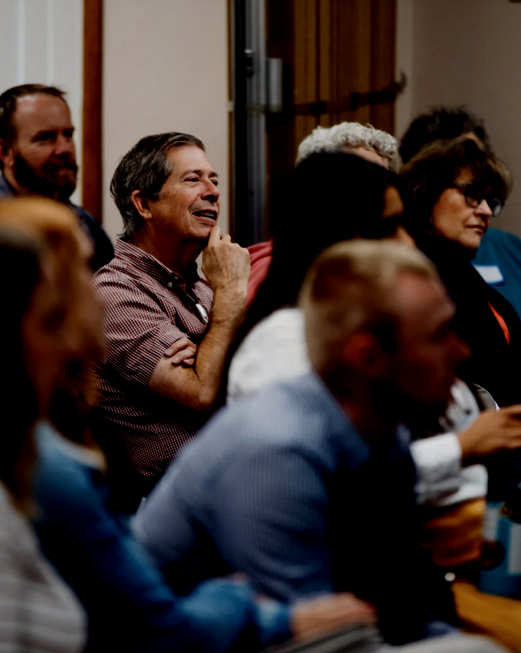LENTEN BIBLE STUDY
With Curtis Martin and Dr. Edward Sri
Finally, you can understand the
“Big Picture” of the Bible
Many Catholics have a piecemeal approach to the Bible. They might know many individual stories: Adam and Eve, Noah and the Ark, Moses and the Ten Commandments, Jesus and the Cross.
What’s missing is an understanding of how they all fit together.
This Lent, discover how the many stories of the Bible come together to tell the one story of God’s plan of salvation and our Catholic Faith.

The Bible reveals the cosmic struggle between good and evil. Far more important than anything we can stream online, this is the story we want written in our hearts.
This Lent, join Curtis Martin and Dr. Edward Sri for a twelve-week walk through “the big picture” of the Bible. This Bible study is perfect for small groups or self-study.
Participants will…
- Come away with the “Big Picture” of the Bible
- See the Catholic Faith in Scripture
- Discover the role they play in the story
- Learn how to share the story with others
Receive the word.
Share it with others.
This is our call.
THE DETAILS

This Lent, 12 sessions
January 23 – April 10
Watch live on Mondays
6:00 pm – 6:55 pm MT
You can also watch (or rewatch) the recording after each session whenever it suits your schedule.

Benefactors
Mission Partners
Parishioners
Pastoral Ministry Leaders
Alumni
Friends of FOCUS

Gather in groups (in person or over virtual conferencing)
Watch the presentations
Discuss together!
Reflection questions are provided by FOCUS each week.
Weekly Schedule
6:00 pm MT – Bible Study
6:35 pm MT – Q&A with Curtis and Dr. Sri
6:55 pm MT – Small Group Discussion
Optional but highly encouraged, either in person or via video chat. Organized on your own.)
FREQUENTLY ASKED QUESTIONS
WHAT ARE THE DATES OF THE SESSIONS?
- Week 1 (Jan. 23)
- Week 2 (Jan. 30)
- Week 3 (Feb. 6)
- Week 4 (Feb. 13)
- Week 5 (Feb. 20)
- Week 6 (Feb. 27)
- Week 7 (Mar. 6)
- Week 8 (Mar. 13)
- Week 9 (Mar. 20)
- Week 10 (Mar. 27)
- Week 11 (Apr. 3)
- Week 12 (Apr. 10)

HOW DO I VIEW THE BIBLE STUDY?
A link will be sent to all registered participants.
HOW DO I FIND A GROUP?
You will be responsible for finding a group of people to participate locally. We recommend inviting people in your local parish, friends, and family!
WHY IS FOCUS HOSTING THIS BIBLE STUDY?
Many have expressed a desire to receive some of the training in evangelization and discipleship that FOCUS has successfully employed for nearly 25 years. This is an opportunity to receive specialized formative content and proven evangelization skills to enter more deeply into mission.
“All who believe in Christ should feel, as an integral part of their faith, an apostolic concern to pass on to others its light and joy. This concern must become, as it were, a hunger and thirst to make the Lord known.”
– Pope St. John Paul II
